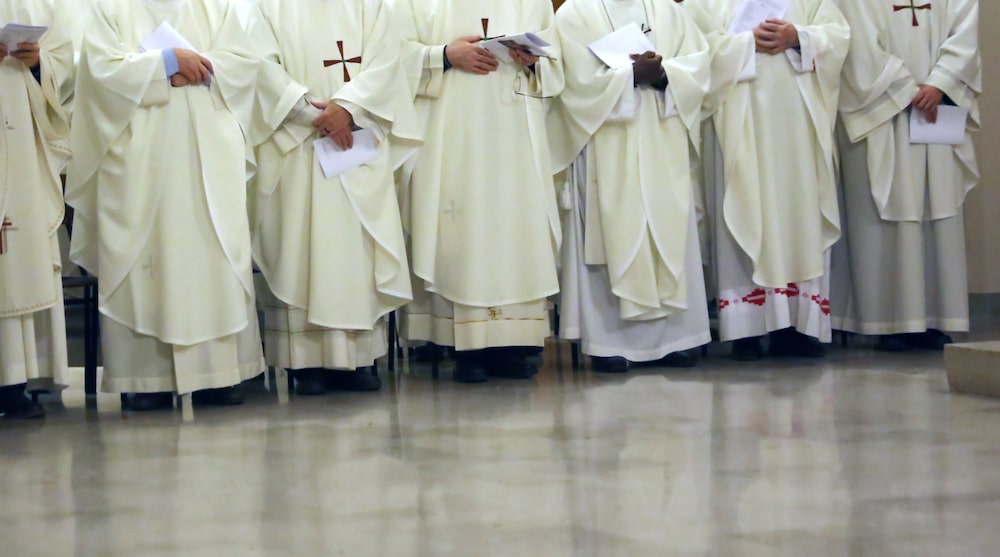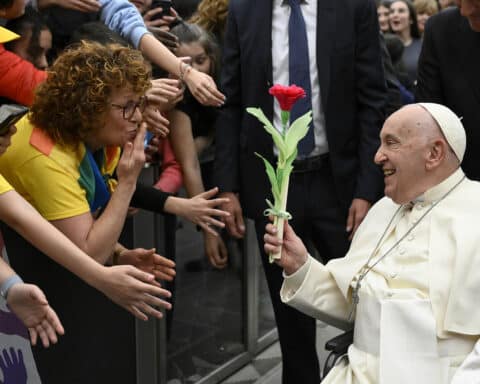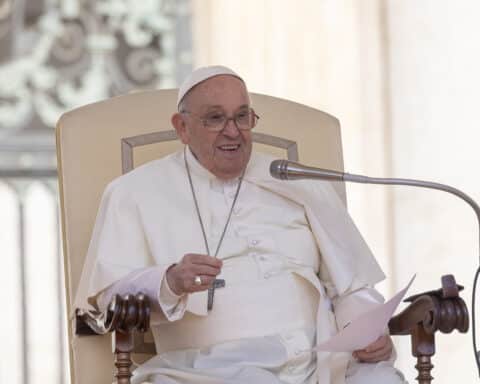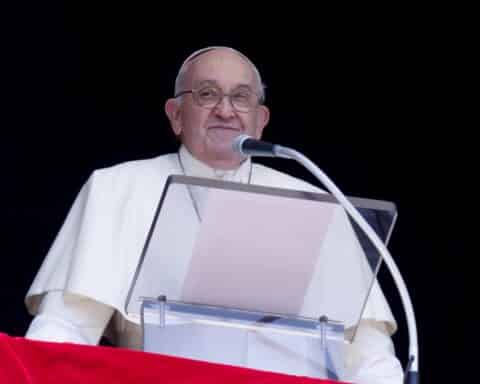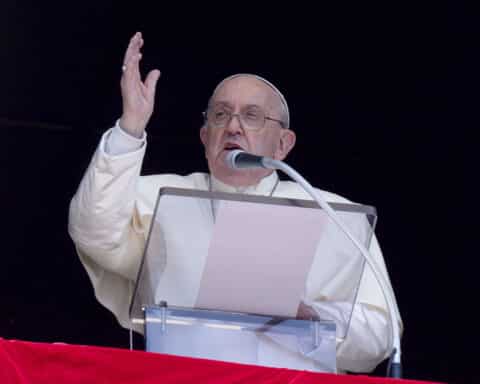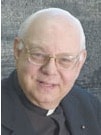
(Chronic failures by commercial news outlets to report happenings in the Church fully and accurately is why Our Sunday Visitor, OSV News, Catholic News Agency, America and others were founded and see themselves still today as having a mission.)
First, what did the pope say? He did not announce an end to priestly celibacy. He said that celibacy, or the choice not to marry, is not essential to the priesthood. Nobody in Church authority ever said that it was. The priesthood was established by the Lord and comes to a man in the Sacrament of Holy Orders, whether he is married or not.
Many Catholics forget that everything with which they are familiar in the Roman rite does not pertain, and has never pertained, universally or always in their Church. Millions of good, devoted Catholics worship according to the other rites of the Church, originally, because of historical developments, centered in the Middle East and Eastern Europe.
In many of these Eastern rites, priests are married. Ukraine has been much in the news. Ukrainian Catholic priests often are married and are active as priests, with the full blessings of this pope and of popes going back many centuries.
Celibacy, or the choice never to marry, is a requisite for being ordained as a priest in the Roman rite, historically based in Western Europe, and brought by Western Europeans to places like this country.
Critics of the Church, or of celibacy, say that St. Peter was married. He was. The Gospel mentions his mother-in-law (cf. Lk 4:38). Was Peter married when Christ called him to be an apostle? Was he a widower? Nobody knows. Were the other apostles married? The New Testament is silent. One guess is as good as another.
Scholars believe St. Paul was not married.
Forget Peter’s marriage. Celibacy for priests in the Roman rite, first and foremost, rests on the explicit words of Jesus. In Matthew 19, Christ said that remaining unmarried “for the sake of the kingdom” (of God) is the ideal for all Christian disciples.
St. Paul vigorously applauded celibacy (cf. 1 Cor 7). From Christianity’s earliest days, celibacy was a value. Recall the esteem for the virgin martyrs. Relatively soon came monks and nuns, who vowed never to marry.
Pope Francis addressed the hunches that, were priests allowed to marry, vocations would increase. In fact, vocations are tumbling downward in Protestant denominations in which ministers are married. The drop in vocations, for all religious groups, is another revelation of the decline overall in regard for religion.
(Some say celibacy caused clergy sex abuse. What about the similar, arguably worse, scandal among Southern Baptists, whose ministers invariably are married, usually with children?)
Modern seminaries diligently try to inform students of what they are doing when they commit themselves to celibacy. Every priest is supposed to be aware, fully, of what celibacy entails for himself, because the Church wants and expects celibacy to be desired and deliberately chosen by the priest.
The pope admitted that some change might be needed. A shortage of priests has worried Church authorities for a century. It is especially concerning in some places.
In the Diocese of Davenport, Iowa, one priest is available for every 850 Catholics. In the Archdiocese of Mobile, Alabama, it is one priest per every 800 Catholics. For the Archdiocese of Quito, in Ecuador, it is one priest for every 11,000 Catholics. In the Archdiocese of Davao, in the Philippines, it is one priest for every 14,000 Catholics.
The pope noted suggestions, nothing new, that ordaining married men as priests might help in underserved regions.
Access to the sacraments by Catholics is critical, but the Church long has insisted upon celibacy for Roman rite priests because it remembers the words of Christ, the ideal for disciples.
Msgr. Owen F. Campion is OSV’s chaplain.

